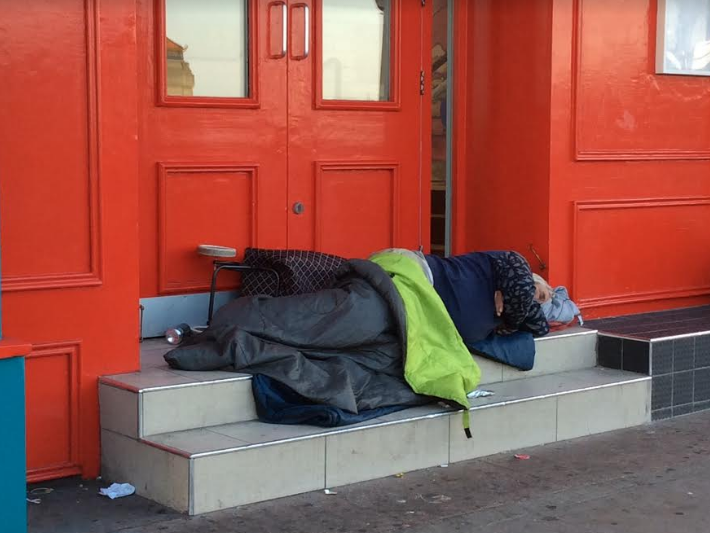A lack of money and limited options are expected to make it challenging to keep rough sleepers off the streets after the summer, according to an official report.
Brighton and Hove City Council’s Housing Committee made a commitment, subject to funding, to try to continue providing support and somewhere to stay for all rough sleepers at a meeting in April.
But a report before the committee’s next “virtual” meeting, on Wednesday 17 June, said that the council did not have the money to rehouse everyone.
As a result, the council is asking the Ministry for Housing, Communities and Local Government (MHCLG) for more financial support to give people a roof over their head.
The report said that many people arriving in Brighton and Hove did not have a local connection and the council wanted tighter rules to help people return to where they had better links.
The report also said: “Brighton and Hove is a destination of choice for many people in a wide variety of circumstances such as escaping violence, domestic abuse, drug and social problems as well as being a famous resort and cultural centre which many people move to, to seek work and who arrive without accommodation planned.
“We have a lot of people, therefore, with no local connection, and following the relaxing of restrictions, there will be significant demand for relocating/referring households back to areas where they do have a connection and where it is safe to do so.
“Additional funding for further workers to meet the initial increase in demand would be required and has been raised with MHCLG in addition to strengthening legislation around response times for cases referred to local authorities.”
The report said that a national review was needed, looking at the powers available to councils and police to require people to “co-operate with a statutory referral to another local authority” where housing and support is guaranteed.
At the moment, the council is looking at making more use of shared houses – especially if fewer students take up university places in the autumn.
And housing chiefs are exploring options in the private rented sector as well as using the “Housing First” programme and supported accommodation.
But some rough sleepers do not qualify for any form of financial support and the report said that housing benefit levels were a barrier, with single people under 35 entitled only to a “shared room” rate.
When the lockdown started the council housed about 400 people under the “care and protect” policy. They included rough sleepers and people living in dormitory-style accommodation which made social distancing difficult.
Of those, about 200 have since been assessed for personal housing plans by a mix of public health staff, doctors from Arch Healthcare and homelessness charity St Mungo’s.
About a quarter of those 200 people are classed as exceptionally clinically vulnerable or have significant underlying health needs and would need self-contained accommodation. And two thirds of the 200 would require some form of support.
The council expects to spend nearly £4 million on housing by September, some of which will cover the initial cost of rooms in 12 hotels and guest houses as well as 222 places in student halls from this month as hotels reopen to paying guests.
The council has been allocated £66,000 of government money towards covering the cost of supporting rough sleepers who need to self-isolate.
A further £16.2 million in emergency funding from the government has been allocated for coronavirus spending, including buying PPE (protective personal equipment) for public-facing services.
But the extra costs and loss of income are expected to cost the council £51.5 million this financial year.
The report also said that housing the homeless had also highlighted problems with addictions among people living on the streets.
It said that people with substance misuse problems were struggling to get hold of drugs during the lockdown and needed help to detox.
But Brighton and Hove had no access to residential rehab places as the service that had been in use locally closed its doors during the pandemic.
The report added: “This is a concern, as clients who have never before engaged with treatment are currently engaging – and lack of access to rehab is inhibiting their progression.”
The Housing Committee’s “virtual meeting” is due to start at 4pm next Wednesday (17 June) and is scheduled to be webcast on the council’s website.










Hi Sarah, please can I correct something in this report. You reported that people with addictions in Brighton “… had no access to residential rehab places as the service that had been in use locally closed its doors during the pandemic”.
Other services might have closed but Brighton Housing Trust’s Addiction Services and the St Thomas Fund run by the charity Care Grow Live continued to operate throughout the pandemic and have been accepting new residents.
BHT’s Addiction Services (including our Detox Support Project which has an ‘Outstanding CQC rating) continues to be one of the most effective alcohol and drug rehabilitation services in the country.